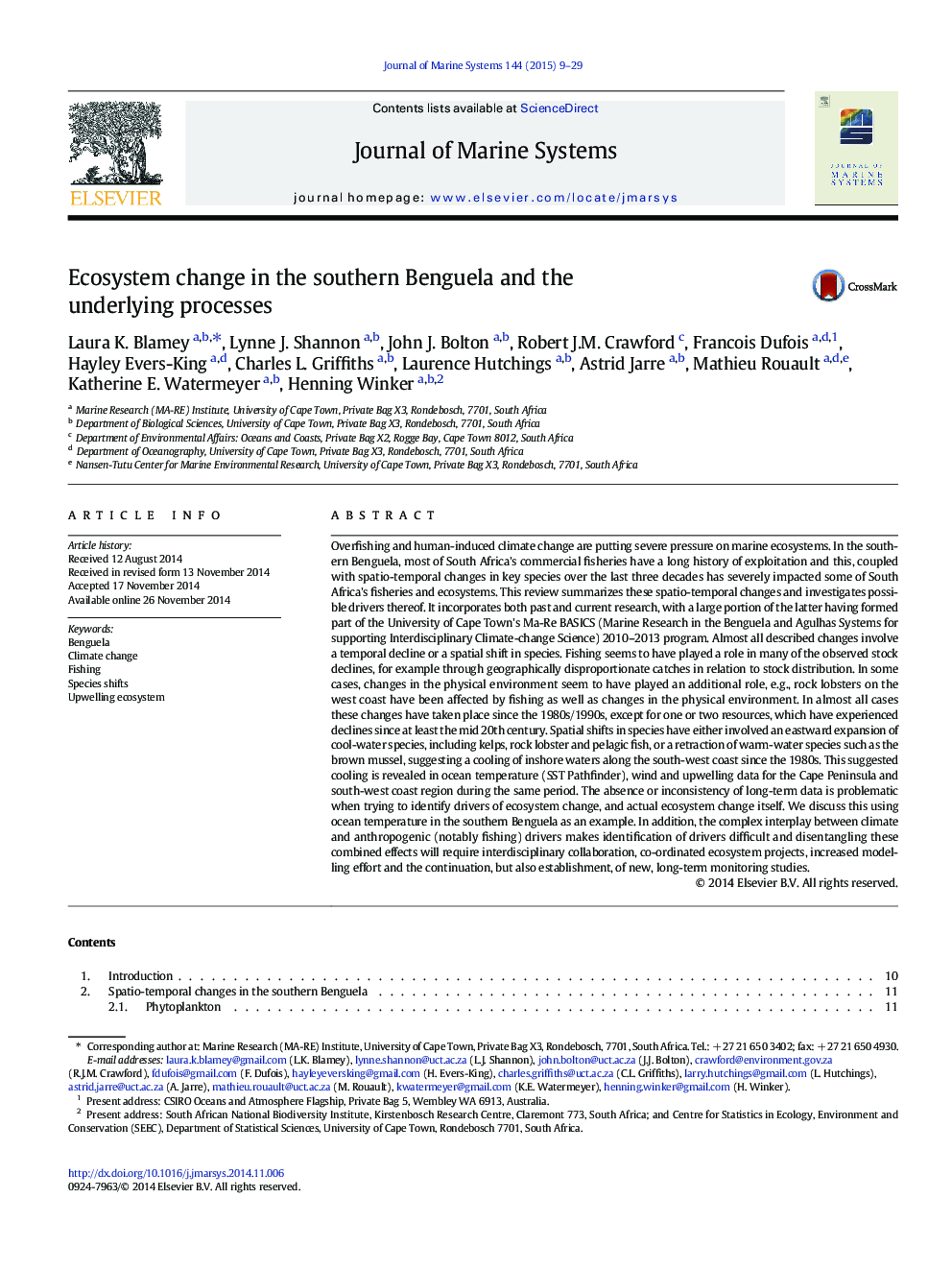| Article ID | Journal | Published Year | Pages | File Type |
|---|---|---|---|---|
| 6386808 | Journal of Marine Systems | 2015 | 21 Pages |
Abstract
Overfishing and human-induced climate change are putting severe pressure on marine ecosystems. In the southern Benguela, most of South Africa's commercial fisheries have a long history of exploitation and this, coupled with spatio-temporal changes in key species over the last three decades has severely impacted some of South Africa's fisheries and ecosystems. This review summarizes these spatio-temporal changes and investigates possible drivers thereof. It incorporates both past and current research, with a large portion of the latter having formed part of the University of Cape Town's Ma-Re BASICS (Marine Research in the Benguela and Agulhas Systems for supporting Interdisciplinary Climate-change Science) 2010-2013 program. Almost all described changes involve a temporal decline or a spatial shift in species. Fishing seems to have played a role in many of the observed stock declines, for example through geographically disproportionate catches in relation to stock distribution. In some cases, changes in the physical environment seem to have played an additional role, e.g., rock lobsters on the west coast have been affected by fishing as well as changes in the physical environment. In almost all cases these changes have taken place since the 1980s/1990s, except for one or two resources, which have experienced declines since at least the mid 20th century. Spatial shifts in species have either involved an eastward expansion of cool-water species, including kelps, rock lobster and pelagic fish, or a retraction of warm-water species such as the brown mussel, suggesting a cooling of inshore waters along the south-west coast since the 1980s. This suggested cooling is revealed in ocean temperature (SST Pathfinder), wind and upwelling data for the Cape Peninsula and south-west coast region during the same period. The absence or inconsistency of long-term data is problematic when trying to identify drivers of ecosystem change, and actual ecosystem change itself. We discuss this using ocean temperature in the southern Benguela as an example. In addition, the complex interplay between climate and anthropogenic (notably fishing) drivers makes identification of drivers difficult and disentangling these combined effects will require interdisciplinary collaboration, co-ordinated ecosystem projects, increased modelling effort and the continuation, but also establishment, of new, long-term monitoring studies.
Related Topics
Physical Sciences and Engineering
Earth and Planetary Sciences
Oceanography
Authors
Laura K. Blamey, Lynne J. Shannon, John J. Bolton, Robert J.M. Crawford, Francois Dufois, Hayley Evers-King, Charles L. Griffiths, Laurence Hutchings, Astrid Jarre, Mathieu Rouault, Katherine E. Watermeyer, Henning Winker,
